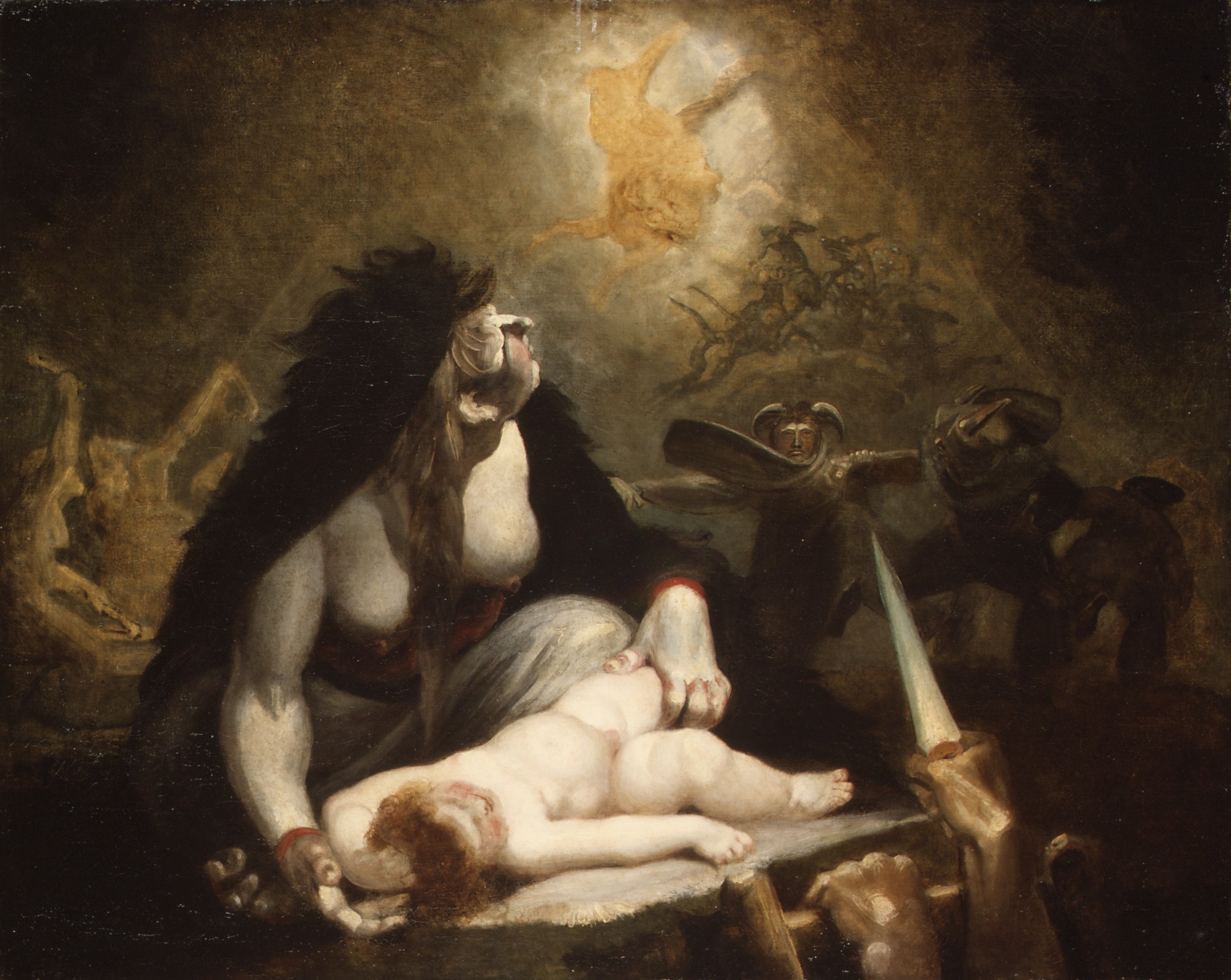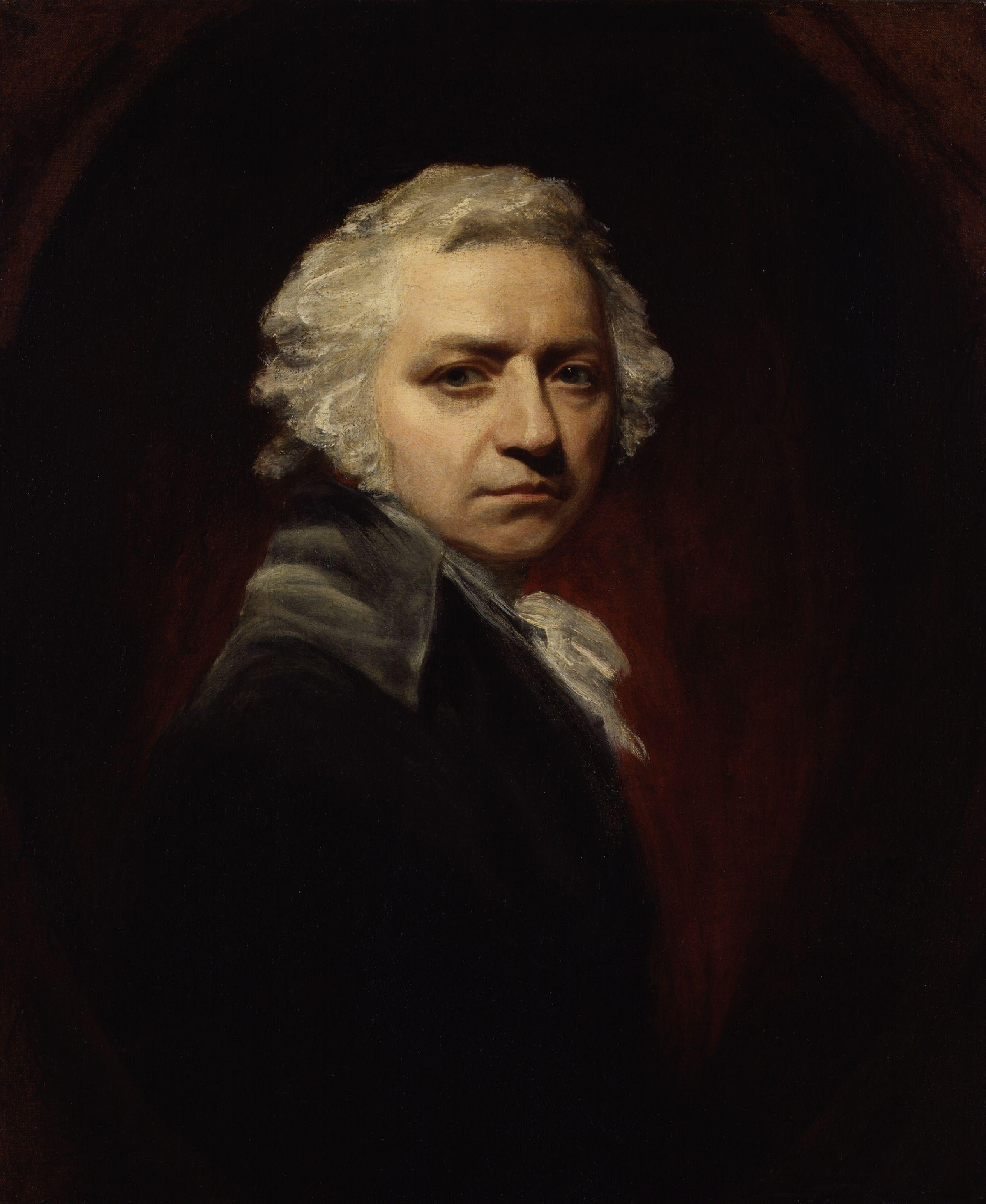On this day in 1741, Henry Fuseli, a Swiss painter, draftsman, and writer was born. His style had a considerable influence on many younger British artists, including William Blake. As a painter, Fuseli favored the supernatural. He pitched everything on an ideal scale, believing a certain amount of exaggeration necessary in the higher branches of historical painting.
This canvas, first exhibited in 1799, was sold by the artist in 1808 to his biographer, John Knowles. It illustrates a passage from Paradise Lost (II, 622–66) in which the hellhounds surrounding Sin are compared to those who "follow the night-hag when, called, / In secret, riding through the air she comes, Lured with the smell of infant blood, to dance / With Lapland witches, while the laboring moon Eclipses at their charms." Night-hag is an epithet of the Greek goddess Hecate, who presided over witchcraft and magical rites.
Read more about Henry Fuseli and his fantasy world here.


 Henry Fuseli
Henry Fuseli